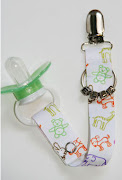Inveventory Reduction Sale
Stop the Diaper Changing Battles
By Elizabeth Pantley, Author of Gentle Baby Care
Babies are little bundles of energy! They don’t want to lie still to have their diapers changed. They cry, fuss, or even crawl away. A simple issue can turn into a major tug-of-war between parent and baby.
Diaper changing as a ritual
The position of parent and baby during a diaper change is perfect for creating a bonding experience between you. You are leaning over your baby, and your face is at the perfect arms-length distance for engaging eye contact and communication. What’s more, this golden opportunity presents itself many times during each day; no matter how busy you both get, you have a few moments of quiet connection. It’s too valuable a ritual to treat it as simply maintenance.
Learning about your baby
Diapering offers a perfect opportunity for you to truly absorb your baby’s cues and signals. You’ll learn how his little body works, what tickles him, what causes those tiny goose bumps. As you lift, move, and touch your baby, your hands will learn the map of his body and what’s normal for him. This is important because it will enable you to easily decipher any physical changes that need attention.
Developing trust
Regular diaper changes create rhythm in your baby’s world and afford the sense that the world is safe and dependable. They are regular and consistent episodes in days that may not always be predictable. Your loving touches teach your baby that he is valued, and your gentle care teaches him that he is respected.
A learning experience for your baby
Your baby does a lot of learning during diaper changes. It’s one of the few times that she actually sees her own body without clothes, when she can feel her complete movements without a wad of diaper between her legs. Diaper-off time is a great chance for her to stretch her limbs and learn how they move.
During changing time, your baby is also a captive audience to your voice, so she can focus on what you are saying and how you are saying it — an important component of her language learning process. Likewise, for a precious few minutes, you are her captive audience, so you can focus on what she’s saying and how she is saying it — crucial to the growth of your relationship.
What your baby thinks and feels
Many active babies could not care less if their diapers are clean. They’re too busy to concern themselves with such trivial issues. It may be important to you, but it’s not a priority for your child.
Diaper rash or uncomfortable diapers (wrong size or bad fit) can make him dread diaper changes, so check these first. Once you’re sure all the practical issues are covered, make a few adjustments in this unavoidable process to make it more enjoyable.
Take a deep breath
Given the number of diapers you have to change, it’s possible that what used to be a pleasant experience for you has gotten to be routine, or even worse, a hassle. When parents approach diaper changing in a brisk, no-nonsense way, it isn’t any fun for Baby. Try to reconnect with the bonding experience that diaper changing can be -- a moment of calm in a busy day when you share one-on-one time with your baby.
Have some fun
This is a great time to sing songs, blow tummy raspberries, or do some tickle and play. A little fun might take the dread out of diaper changes for both of you. A game that stays fresh for a long time is “hide the diaper.” Put a new diaper on your head, on your shoulder, or tucked in your shirt and ask, “Where’s the diaper? I can’t find it!” A fun twist is to give the diaper a name and a silly voice, and use it as a puppet. Let the diaper call your child to the changing station and have it talk to him as you change it. (If you get tired of making Mister Diaper talk, just remember what it was like before you tried the idea.)
Use distraction
Keep a flashlight with your changing supplies and let your baby play with it while you change him. Some kids’ flashlights have a button to change the color of the light, or shape of the ray. Call this his “diaper flashlight” and put it away when the change is complete. You may find a different type of special toy that appeals to your little one, or even a basket of small interesting toys. If you reserve these only for diaper time, they can retain their novelty for a long time.
Try a stand-up diaper
If your baby’s diaper is just wet (not messy), try letting her stand up while you do a quick change. If you’re using cloth diapers, have one leg pre-pinned so that you can slide it on like pants, or opt for pre-fitted diapers that don’t require pins.
Time to potty train?
If your child is old enough and seems ready for the next step, consider potty training.
This article is an excerpt from Gentle Baby Care by Elizabeth Pantley. (McGraw-Hill, 2003)
Handling Unwanted Advice
By Elizabeth Pantley, Author of Gentle Baby Care
“Help! I’m getting so frustrated with the endless stream of advice I get from my mother-in-law and brother! No matter what I do, I’m doing it wrong. I love them both, but how do I get them to stop dispensing all this unwanted advice?”
Just as your baby is an important part of your life, he is also important to others. People who care about your baby are bonded to you and your child in a special way that invites their counsel. Knowing this may give you a reason to handle the interference gently, in a way that leaves everyone’s feelings intact.
Regardless of the advice, it is your baby, and in the end, you will raise your child the way that you think best. So it’s rarely worth creating a war over a well-meaning person’s comments. You can respond to unwanted advice in a variety of ways:
Listen first
It’s natural to be defensive if you feel that someone is judging you; but chances are you are not being criticized; rather, the other person is sharing what they feel to be valuable insight. Try to listen - you may just learn something valuable.
Disregard
If you know that there is no convincing the other person to change her mind, simply smile, nod, and make a non-committal response, such as, “Interesting!” Then go about your own business...your way.
Agree
You might find one part of the advice that you agree with. If you can, provide wholehearted agreement on that topic.
Pick your battles
If your mother-in-law insists that Baby wear a hat on your walk to the park, go ahead and pop one on his head. This won’t have any long-term effects except that of placating her. However, don’t capitulate on issues that are important to you or the health or well-being of your child.
Steer clear of the topic
If your brother is pressuring you to let your baby cry to sleep, but you would never do that, then don’t complain to him about your baby getting you up five times the night before. If he brings up the topic, then distraction is definitely in order, such as, “Would you like a cup of coffee?”
Educate yourself
Knowledge is power; protect yourself and your sanity by reading up on your parenting choices. Rely on the confidence that you are doing your best for your baby.
Educate the other person
If your “teacher” is imparting information that you know to be outdated or wrong, share what you’ve learned on the topic. You may be able to open the other person’s mind. Refer to a study, book, or report that you have read.
Quote a doctor
Many people accept a point of view if a professional has validated it. If your own pediatrician agrees with your position, say, “My doctor said to wait until she’s at least six months before starting solids.” If your own doctor doesn’t back your view on that issue, then refer to another doctor - perhaps the author of a baby care book.
Be vague
You can avoid confrontation with an elusive response. For example, if your sister asks if you’ve started potty training yet (but you are many months away from even starting the process), you can answer with, “We’re moving in that direction.”
Ask for advice!
Your friendly counselor is possibly an expert on a few issues that you can agree on. Search out these points and invite guidance. She’ll be happy that she is helping you, and you’ll be happy you have a way to avoid a showdown about topics that you don’t agree on.
Memorize a standard response
Here’s a comment that can be said in response to almost any piece of advice: “This may not be the right way for you, but it’s the right way for me.”
Be honest
Try being honest about your feelings. Pick a time free of distractions and choose your words carefully, such as, “I know how much you love Harry, and I’m glad you spend so much time with him. I know you think you’re helping me when you give me advice about this, but I’m comfortable with my own approach, and I’d really appreciate if you’d understand that.”
Find a mediator
If the situation is putting a strain on your relationship with the advice-giver, you may want to ask another person to step in for you.
Search out like-minded friends
Join a support group or on-line club with people who share your parenting philosophies. Talking with others who are raising their babies in a way that is similar to your own can give you the strength to face people who don’t understand your viewpoints.
This article is an excerpt from Gentle Baby Care by Elizabeth Pantley. (McGraw-Hill, 2003)





















